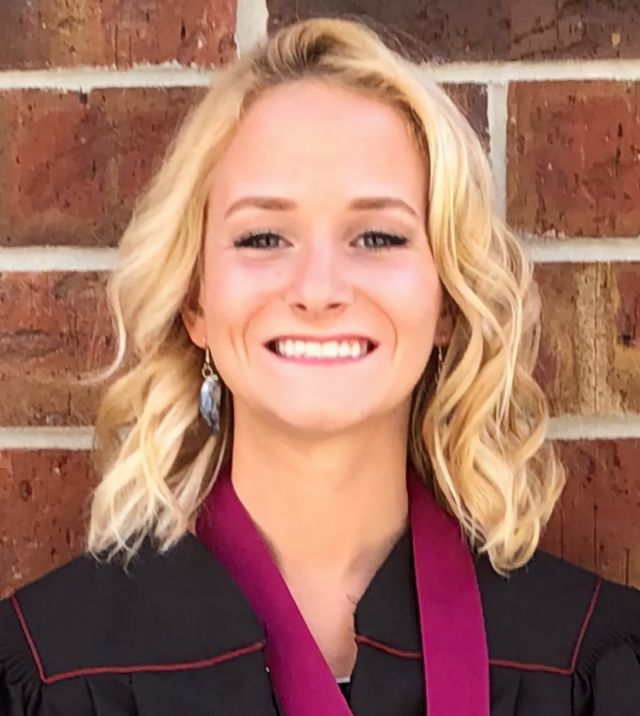Mesopotamia Nowotarski Selected as 2020 NSF Graduate Research Fellowship Recipient
The 2020 NSF Graduate Research Fellowship Program (GRFP) has announced its selections for Fellow candidates. Mesopotamia Nowotarski, a second-year PhD student co-advised by Prof. Songi Han and Prof. Matthew Fisher, has deservingly earned her place among this honorable list.
By Khanh Nguyen

Mesopotamia Nowotarski has been selected to receive a 2020 NSF Graduate Research Fellowship for her proposal to experimentally isolate a free-floating Posner cluster, confirm its structure, and characterize its phase diagram.
Synthetic bone can be regenerated from hydroxyapatite (HA), but the resultant material does not have adequate mechanical and physiological properties, thus limiting bioimplantation. These drawbacks are due to the enigmatic mineralization pathway of bone. Posner clusters (PCs) have been postulated to serve as a mediating component in this process, thus dictating bone regeneration. Elucidating the fundamental properties of these PCs could be key to understanding the mineralization pathway of bone, thus rendering more superior bone material regeneration.
Using 31P solution and solid-state NMR spectroscopic techniques, Mia seeks to investigate the atomic arrangement in the elusive PC, hoping to determine its unique chemical shift, dynamic behavior, and 31P spin population. These insights will help elucidate the role of PCs in the unresolved formation pathway of bone, allowing for future targeted inhibition of damaging mineralization on bioprosthetics or selective promotion of bone formation.
The Awardee List can be found here.
Besides the proposed merits that earned Mia the NSF Fellowship, her project also carries significance in the field of neuroscience. The 31P nuclei found in PCs have been implicated to function as a platform for quantum computation in cognitive processes by her co-advisor Dr. Matthew Fisher. The findings of Mia’s research may hold additional answers to questions related to mammalian brain function and allow for developments in quantum computing and brain machine interfaces.
Big congratulations to Mia!